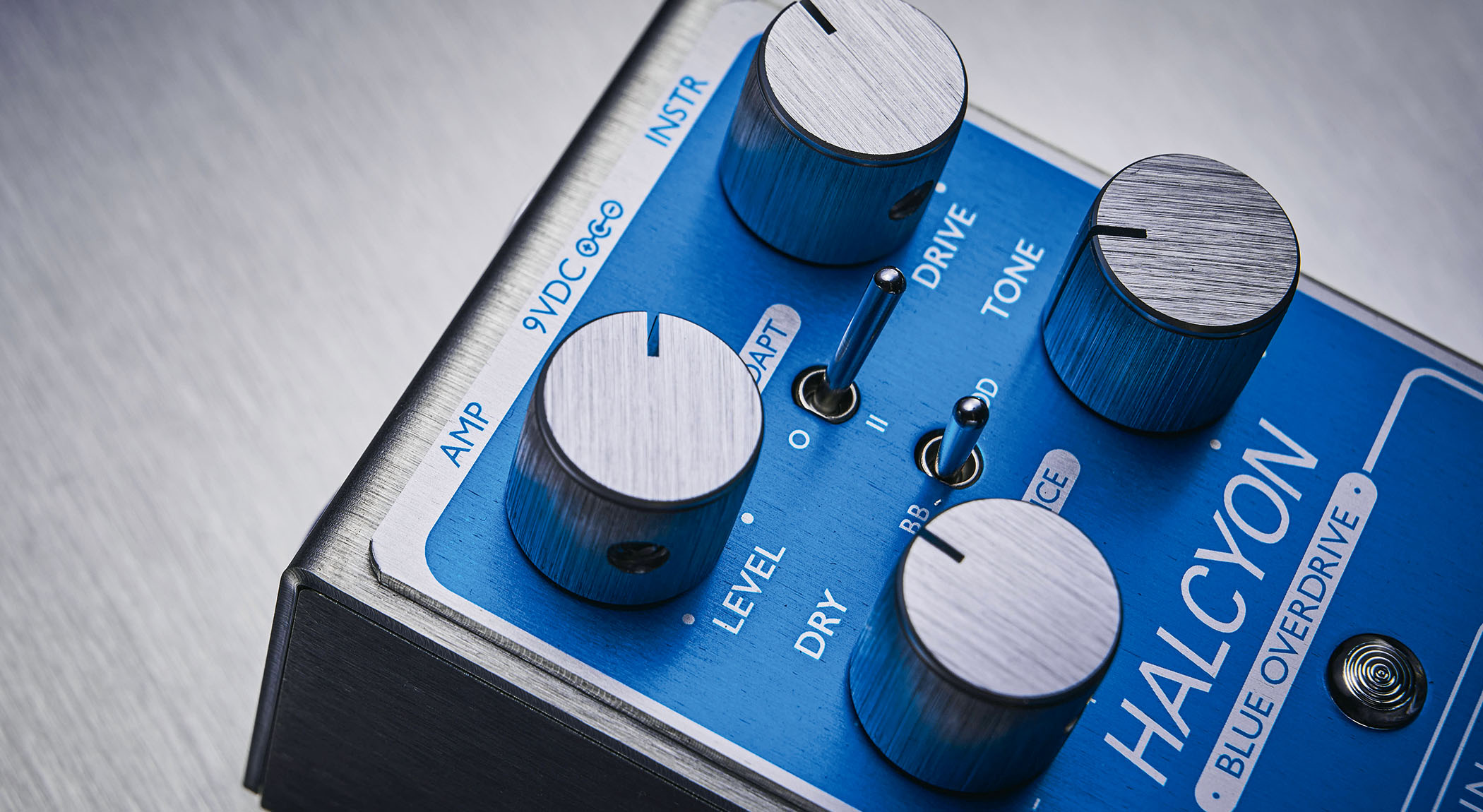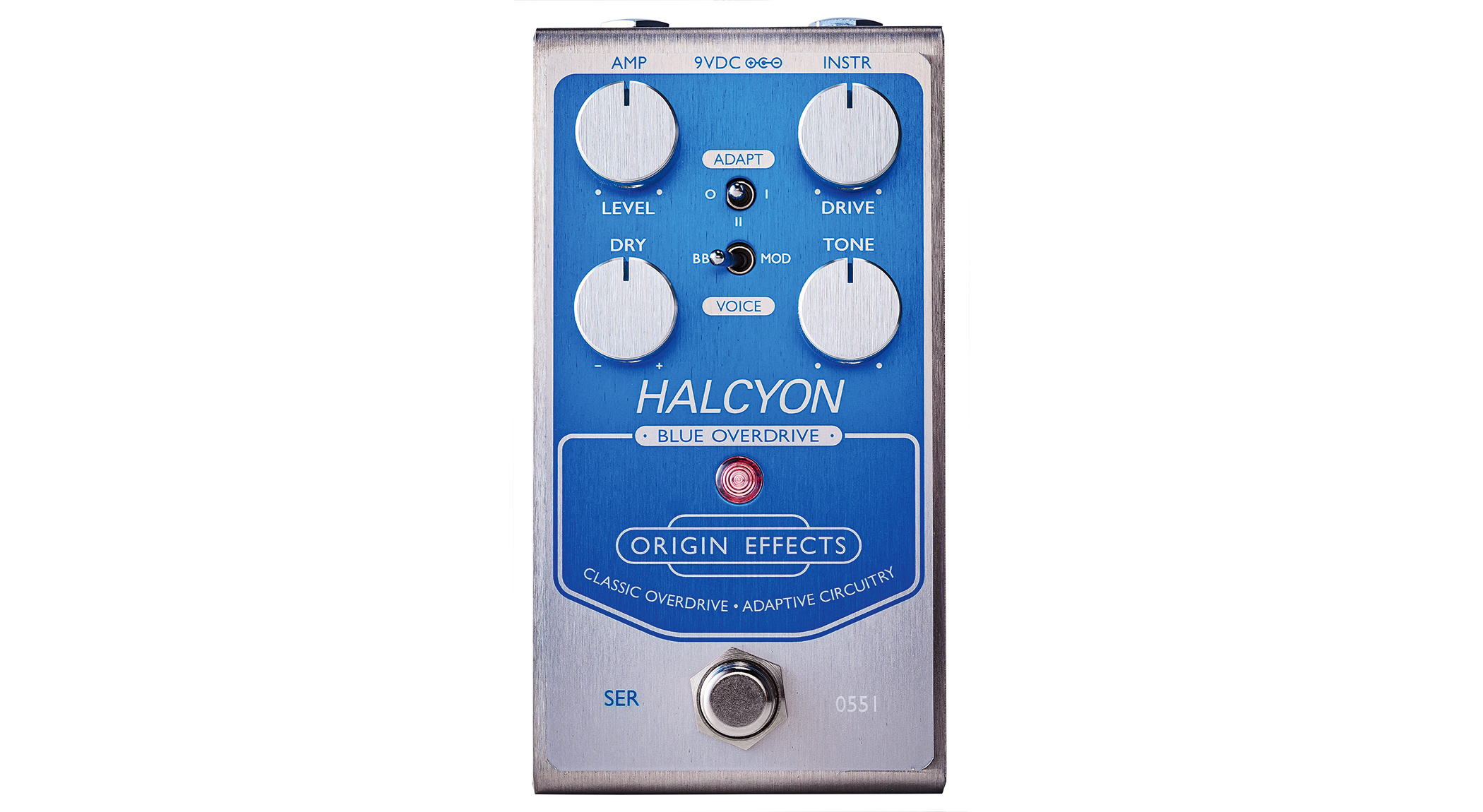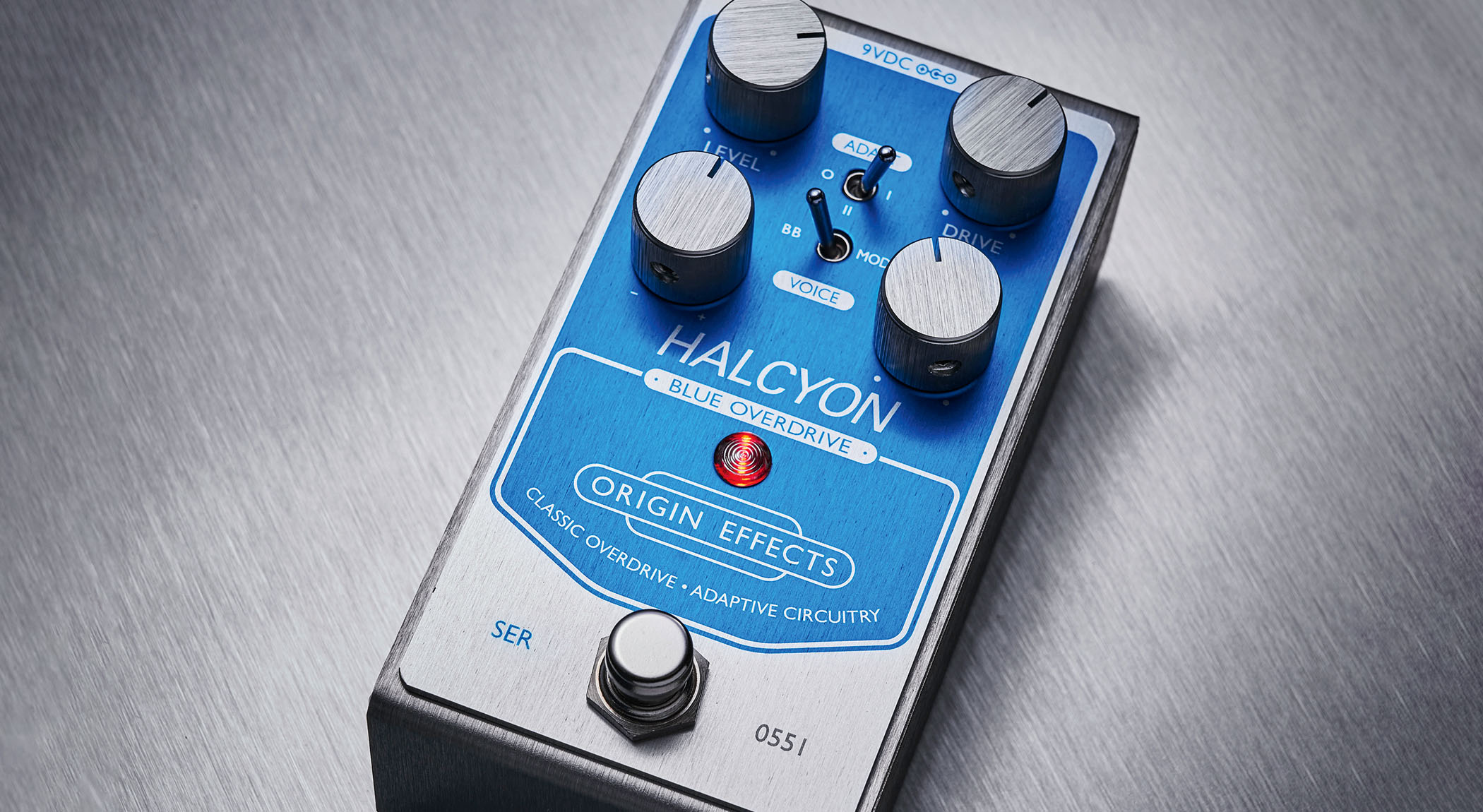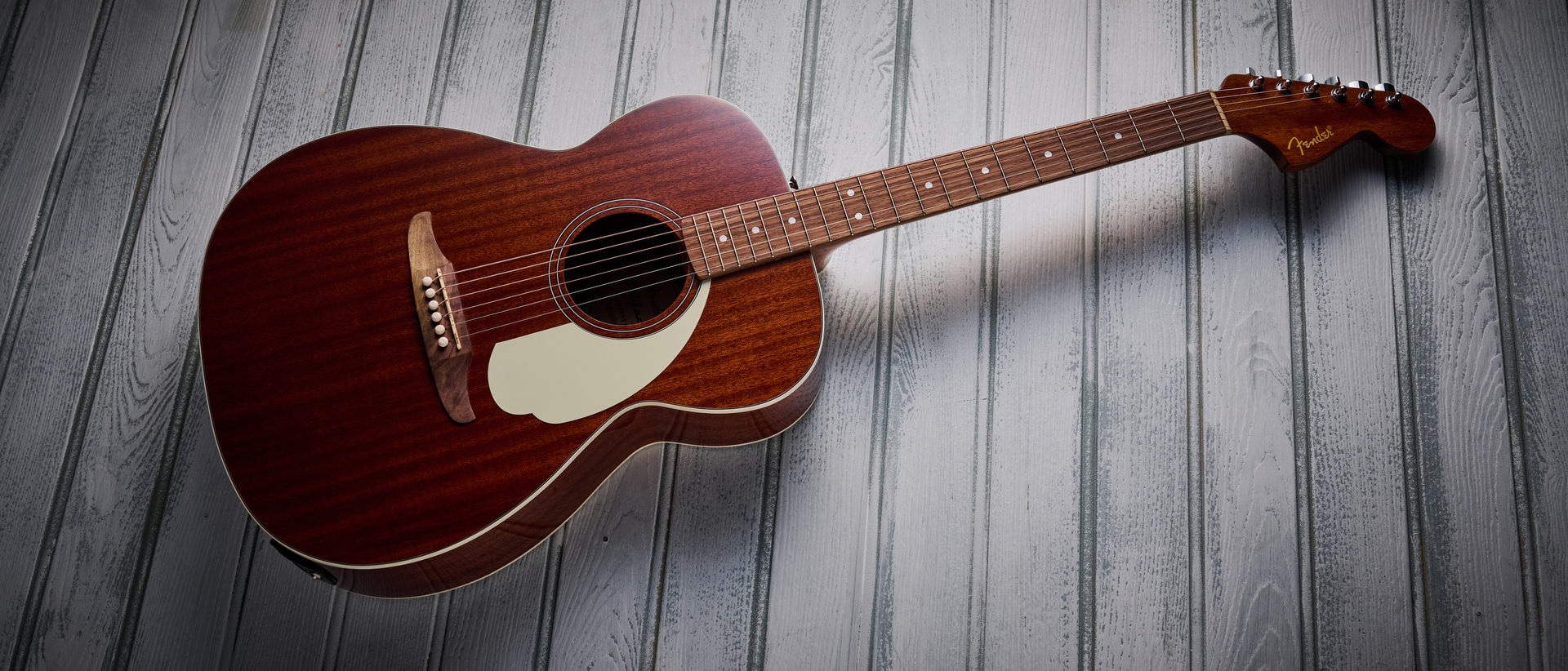Guitar World Verdict
The Halcyon Blue is a more sophisticated version of a Bluesbreaker pedal. So if you like that sound but want it delivered with practical variations and enhancements in a compact, solidly engineered pedal, then this is for you.
Pros
- +
Excellent build quality.
- +
Compact size.
- +
Accurate BB tone.
- +
Advanced dynamic response and clean-up characteristics.
- +
Two voicings.
- +
Adjustable dry sound and practical tone control.
Cons
- -
Only that it’s at a price point that won’t be accessible to all.
You can trust Guitar World
What is it?
Origin Effects has completed a trilogy of what are arguably the three most cloned and modified overdrive pedals.
First, we saw the Halcyon Green Overdrive based on a Tube Screamer, then came the Klon-based Halcyon Gold Overdrive, and now here’s the Halcyon Blue Overdrive, inspired by the early ’90s Marshall Bluesbreaker pedal.
However, these aren’t mere clones. In fact, Origin has expanded the tonal options with a toggle-switched choice of an authentic original voicing or a modified one, plus a user-variable amount of dry sound as a component of the signal, and the company’s Adaptive Circuitry with its neat trick of automatically adjusting voicing in response to pick attack and volume changes.
Usability and sounds

Setting the pedal to its BB voicing and utilising the Level, Drive and Tone knobs as found on the original Bluesbreaker yields a range of tones that completely matches the original’s, with a nice lift in the midrange, delivering enhanced ‘beyond clean’ boosts right through to a lovely textured drive.
For variation, we have the Dry knob, which is not a control that mixes your dry signal in proportion to the drive; it actually sets the amount of passed-through unaffected dry signal that’s always been a component part of Bluesbreaker circuitry.
At its noon position, the knob mimics the Bluesbreaker entirely, but you can use it to increase the amount of dry signal or reduce/remove it from the signal. It’s a subtle control, but it does make a difference. We particularly like the dynamic feel and the touch of extra clarity that comes with a bit more dry sound.

A less subtle deviation from the classic BB sound – although still in the same ballpark – is the Mod voicing, which offers a different diode clipping characteristic with more gain and a fatter sound.
All the latest guitar news, interviews, lessons, reviews, deals and more, direct to your inbox!
All of this can be delivered via the Adapt Circuitry, which cleans up your tone by reducing midrange emphasis when playing more softly or with your guitar volume knob turned down.
The tonal differences between the Off setting and the two levels of Adaptive behaviour are there to be exploited – find which best suits you.
Verdict
The Halcyon Blue is a more sophisticated version of a Bluesbreaker pedal. So if you like that sound but want it delivered with practical variations and enhancements in a compact, solidly engineered pedal, then this is for you.
Specs
Launch price: $299 / £249 / €289
Type: Overdrive pedal
Controls: Level, Drive, Dry, Tone, Adapt switch (0/I/II), Voice Switch (BB/Mod), Bypass footswitch
Connectivity: Standard input, standard output:, 9V DC adaptor
Bypass: Buffered
Power: 9V DC, (not supplied) 200mA
Dimensions: 58 (w) x 124 (d) x 64mm (h)
Contact: Origin Effects
Hands-on videos
Andertons
Origin Effects
Pete Thorn
Trevor Curwen has played guitar for several decades – he's also mimed it on the UK's Top of the Pops. Much of his working life, though, has been spent behind the mixing desk, during which time he has built up a solid collection of the guitars, amps and pedals needed to cover just about any studio session. He writes pedal reviews for Guitarist and has contributed to Total Guitar, MusicRadar and Future Music among others.






